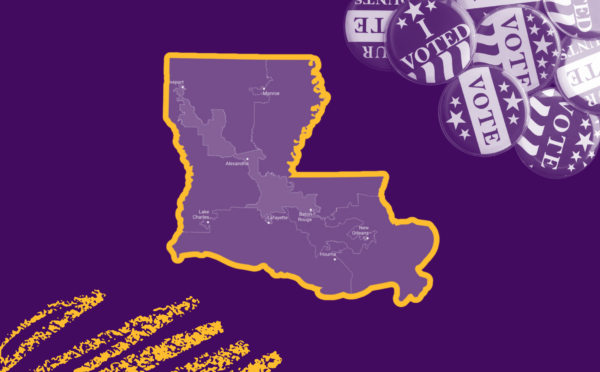DURHAM, N.C. (Dec. 27, 2024) – A group of historians in Louisiana is urging the U.S. Supreme Court to reverse a lower court’s decision to strike down a map creating a second majority-Black congressional district in the state, according to an amicus brief filed December 26, 2024.
The brief was filed Thursday in the consolidated cases Louisiana v. Callais and Robinson v. Callais, by counsel from Southern Coalition for Social Justice, on behalf of Dr. John Bardes of Louisiana State University, Dr. R. Blakeslee Gilpin of Tulane University, and Dr. Adam Fairclough of Leiden University (Emeritus)—expert historians of Louisiana and the greater American South.
They filed the brief to assist the high court in understanding why a robust historical record demonstrates that Louisiana’s Congressional District 6, as set forth in SB8, reflects a longstanding community of interest in the state, and that the lower court’s disregard for lay testimony about this community caused a clearly erroneous ruling.
The Louisiana Legislature enacted SB8 to remedy an established violation under Section 2 of the Voting Rights Act of 1965 for its failure to draw at least two Black-opportunity Congressional districts in 2022. The 2024 map created a second majority-Black district, Congressional District 6, united by the I49 corridor and the Red River.
“The Red River Valley has been recognized as a cohesive geographical, agricultural, economic, social, and political unit for over two hundred years,” the amicus states. “Beginning in the early 19th century, this narrow and highly fertile floodplain became a center of intensive cotton production that relied upon enslaved labor. Today’s Black population, a latticework of interconnected communities, is largely descended from those enslaved laborers.”
Read the full amicus brief here.
The lower court “committed clear error” by disregarding the evidence of communities of interest within District 6, according to the amicus.
“It is crucial to the rule of law that courts uphold and enforce voting maps that remedy racially discriminatory redistricting,” said Hilary Harris Klein, Senior Counsel for Voting Rights with SCSJ and counsel of record for the historian amici. “Louisiana’s Black voters fought long and hard, with their counsel, to have an equal opportunity to elect a member of Congress when they go to the ballot box. The district court’s decision to reject this remedial map was based on a flawed analysis of communities of interest and should not stand.”
XXX
Southern Coalition for Social Justice, founded in 2007, partners with communities of color and economically disadvantaged communities in the South to defend and advance their political, social, and economic rights through the combination of legal advocacy, research, organizing, and communications. Learn more at southerncoalition.org and follow our work on Facebook, Instagram, and LinkedIn.

